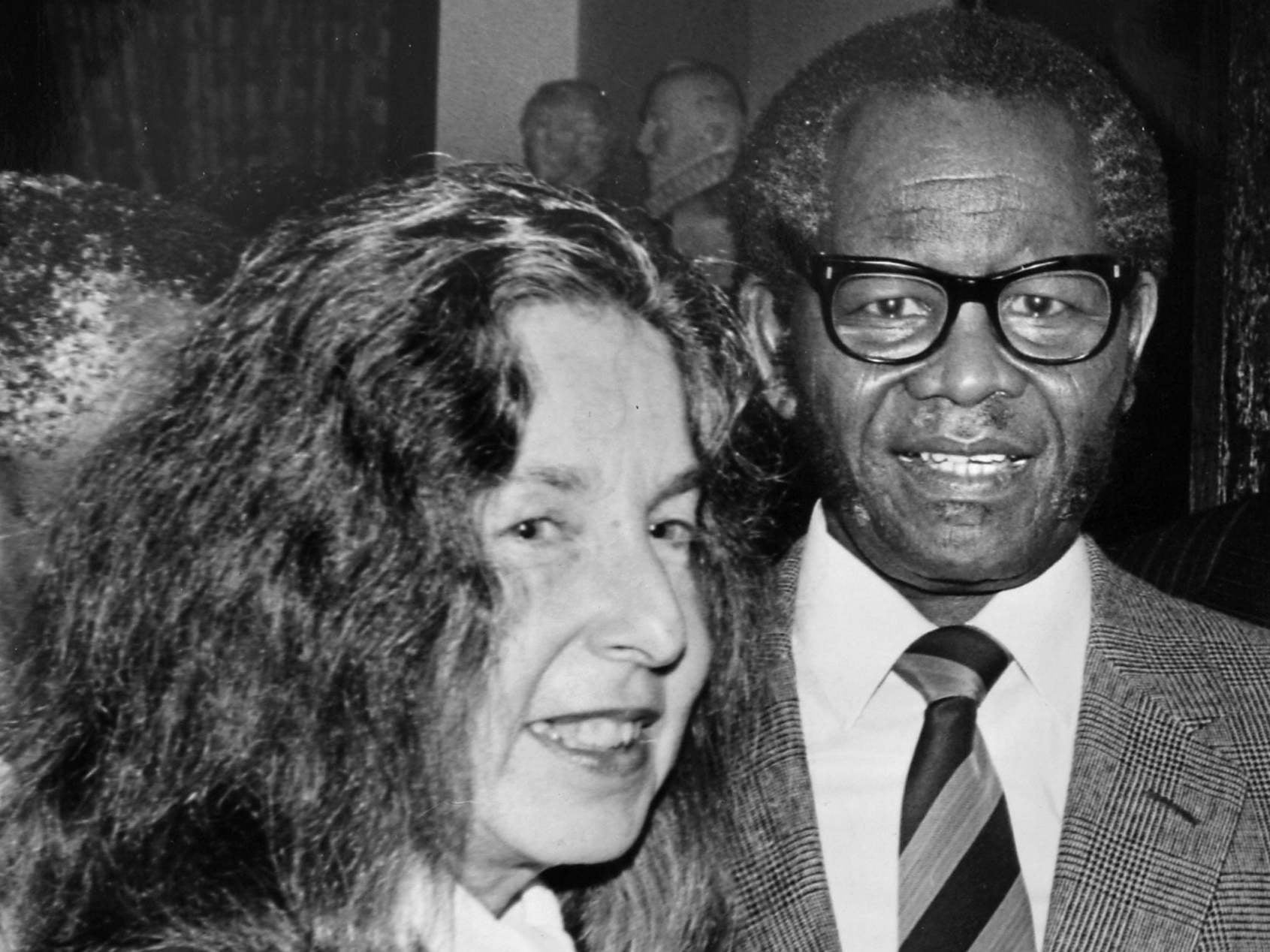Jennifer Davis: Exiled hero of South Africa’s anti-apartheid movement
She was a forceful advocate for divestment in firms that did business with the country

Jennifer Davis was born to Jewish parents in Johannesburg, where her German mother and South African father had sought refuge from the antisemitism that increasingly threatened German society in the early 1930s.
As she came of age in the aftermath of the Holocaust, Davis reflected on Nazi ideas of Aryan supremacy and the consequences they had wrought in Europe. She said: “I learnt that when we said ‘never again’, we meant, really, never again would we allow such things to happen to any other people, not just to Jewish people.”
Davis, who has died aged 85, went on to devote decades of her life to dismantling the apartheid system of racial segregation that cleaved South African society and oppressed the black majority for nearly half a century after its establishment in 1948. Her activism made her persona non grata in her home country and drove her in 1966 into exile in the US, where she redoubled her efforts as one of the most forceful advocates for the divestment of stock in companies that did business in apartheid-era South Africa.
“Simple arithmetic, which proved correct, suggested to us that the companies would stay, enjoying the benefits of apartheid, until they calculated that staying was costing them more than leaving,” she told an interviewer for the book No Easy Victories: African Liberation and American Activists Over a Half Century, 1950-2000. “So we needed to raise their pain – and that meant increasing the size of the investments that might be pulled out of their control.”
The divestment movement, along with other efforts in South Africa and abroad, was credited with helping to bring about the end of apartheid in the early 1990s. Nelson Mandela, the anti-apartheid leader who had spent 27 years in prison, became South Africa’s first black president in 1994.
But before those momentous events, the push for divestment was a controversial matter. Some opponents of apartheid supported a strategy represented by the Sullivan principles, named for the Baptist minister Leon Sullivan, who introduced them in 1977. They called for companies with operations in South Africa to ensure such standards as equal pay for equal work and integrated work facilities. Davis, who from 1981 to 2000 was executive director of the New York-based American Committee on Africa, found those principles insufficient. (In time, confronted with the intransigence of the apartheid regime, Sullivan, too, adopted a more aggressive stance.)
“The struggle in South Africa is not about desegregation of the workplace or integration of bathrooms. It is about ending the racist rule of a small, white minority,” Davis wrote in a 1987 newspaper article. “Inside South Africa today, millions of disenfranchised people pursue this struggle for freedom and political power – in the face of police bullets, mass arrests, torture and constant harassment.”
Davis spoke before congress and the UN, on university campuses and to religious organisations, pension administrators, union officials and lawmakers. She coordinated a blizzard of newsletters and reports on the economics of apartheid.
In 1985, American companies represented as much as 10 per cent of investment in South African manufacturing, including 70 per cent of computer manufacturing and 44 percent of the oil industry, and US banks had extended loans totalling nearly $4bn to South African borrowers.
The divestment movement secured a major victory in 1986, when congress overrode a veto by President Ronald Reagan of legislation that, among other measures, prohibited all new American investment in South African businesses and halted the importation of iron, steel, coal, uranium and other products from South Africa.
Davis was persuasive to American audiences in part because she brought to policy debates the clear-eyed insight that sometimes only an outsider can provide.
Jennifer Heymann was born in Johannesburg in 1933. Her father was a paediatrician, and her mother had been a pharmacist in Germany. She received a bachelor’s degree in 1954 from the University of the Witwatersrand in Johannesburg, where she began her activist work in earnest, and where she studied literature, economics and economic history. She conceded that the curricular mix was a “strange combination”, but it was also one that informed her future work, grounded as it was in the ability of economics to shape society.
After her graduation, she worked in the trade union movement and taught in South Africa before settling in the US. She joined the American Committee on Africa in 1967, retiring in 2003.
She is survived by her partner of 46 years, Derek Boyd, and two children from her previous marriage to Michael Davis.
Jennifer Davis, anti-apartheid activist, born 15 December 1933, died 15 October 2019
© Washington Post
Subscribe to Independent Premium to bookmark this article
Want to bookmark your favourite articles and stories to read or reference later? Start your Independent Premium subscription today.

Join our commenting forum
Join thought-provoking conversations, follow other Independent readers and see their replies